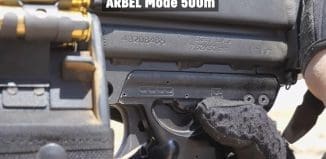Will settlements in the West Bank be secured by civilian contractors?
This post is also available in:  עברית (Hebrew)
עברית (Hebrew)
The IDF spokesman confirmed today that staff work is being done to examine the issue of protecting the settlements in Judea and Samaria, but the speaker noted that at this stage he had not yet received recommendations for any change. It seems that the only possible solution is the transfer of responsibility to civilian professional bodies and bearing the costs by the government and U.S. citizens.
In Judea and Samaria there are about a hundred and fifty Jewish settlements which house some 400 thousand residents and students (residents of new neighborhoods around Jerusalem are not included in this figure) and dozens of settlements, in fact, get continuous security by the IDF. Many of us as well as the writer, took in the past not one part in “Avtash” (settlements security). Most of the great task is carried out by non-combatant soldiers whose skills to fulfill the task are no longer in doubt, as agreed by all – they are not skilled and talented enough to stand a test. If not quite that, no one is characterized by strange situations for the soldier’s activity such as accompanying a child to a music class in the next settlement. This extensive and expensive task can possibly be effective against the theft of property, but not beyond that and certainly cannot handle, let alone eradicate, a real-time terrorist activity. Their current situation can be summed up in three words: expensive and not helpful.
If the new political climate in the country will give a boost to those in the defense ministry to make the change that is requested and if it is indeed confirmed, then the IDF will save a lot of money but the state will probably have to bear immense expenses. Whether happens, it will be “their finest hour” of two Main factors:
– First and foremost, are private security companies that will be forced to recruit masses of veterans of fighting units. It is likely that these fighters probably will not rush to join these companies given the rates paid by these companies to guards at the entrances to malls, for example. Needless to say, those costs will be borne on the government.
– The other factor is those local companies engaged in the development and supply of fencing systems and sophisticated defense where Israel is indeed one of the leading countries. Such equipment which is a “force multiplier”, should reduce the number of guards required to protect all such settlements. But on the other hand, purchase and installation costs of these systems (even the simplest) will not allow residents of these communities to buy them and bear the burden alone.
So we may find ourselves faced with the absurd situation that under the banner of savings, the alternative will be required, but this will cost the country double and more. Of course, that will then grant the right question and that is so cliché in these parts: “So what good did the wise men do?”
Of course, we’ve been discussing here only the outer security perimeter circuit, since the actual handling of a terror event including the pursuit to attack and eradication of terrorists are done today and will be done in the future only by the special units or Special Forces.































